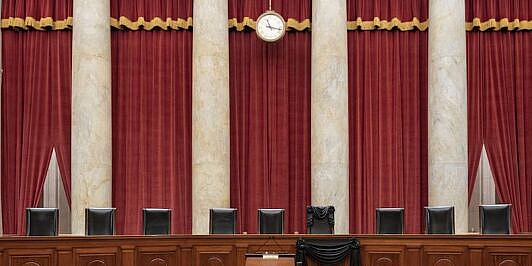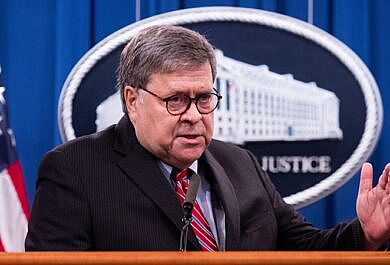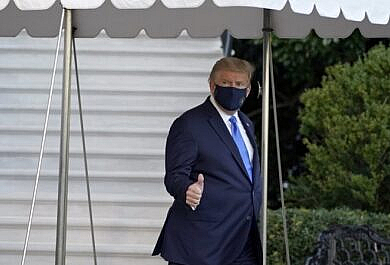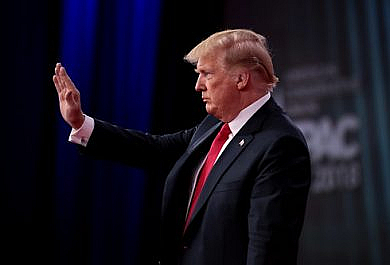The Supreme Court heard oral arguments on Thursday in the case of Trump v. Anderson to determine whether the Colorado Supreme Court was right to disqualify former President Donald Trump from the state’s ballot.
Summary
The Supreme Court heard oral arguments on Thursday in the case of Trump v. Anderson to determine whether the Colorado Supreme Court was right to disqualify former President Donald Trump from the ballot because they determined he “engaged in insurrection” on Jan. 6, 2021.
- Conservative and liberal justices alike seemed to express skepticism about whether Trump could be disqualified from serving a second term as president because of his post-election efforts to overturn the results.
- The Colorado Supreme Court ruled that Section 3 of the 14th Amendment, a post-Civil War measure to prevent those who “engaged in insurrection” from holding elective office, could be applied to Trump.
- The Colorado judges decided that Trump directly incited the Jan. 6 Capitol riot, and held that that constituted an act of insurrection that disqualified him from the presidency.
- The Justices’ questioning of the advocates highlighted their concerns about the implications of states making decisions of this magnitude that could affect a presidential election.
- They also appeared skeptical of the argument that states could enforce the Section 3 provision without Congress having first passed legislation enabling them to do so.
- “The question that you have to confront is why a single state should decide who gets to be president of the United States?” asked Justice Elena Kagan, the leading liberal justice.
- “Your position has the effect of disenfranchising voters to a significant degree,” Justice Brett Kavanaugh told the attorneys advocating for Trump’s removal from the ballot.
![]()
- “Enough justices expressed skepticism of the Colorado Supreme Court’s decision that a majority of the court appeared likely to hand Mr. Trump a victory and vote to overturn it,” the New York Times noted. “Two of the court’s three liberal justices, Elena Kagan and Ketanji Brown Jackson, joined their conservative colleagues in displaying doubts about allowing a state to decide who can run for a national office.”
- “During more than two hours of arguments, Chief Justice John Roberts and the high court’s other conservative justices peppered the lawyers representing Trump’s challengers with a series of questions that suggested they were seeking a way to side with the former president – most likely based on reasoning that doesn’t address the question of whether he is or isn’t an insurrectionist,” CNN observed. “Even some members of the court’s liberal wing posed difficult questions to the lawyers opposed to Trump.”
- “The Supreme Court on Thursday seemed poised to allow former president Donald Trump to remain on the Colorado ballot, expressing deep concerns about permitting a single state to disqualify the leading Republican candidate from seeking national office,” wrote the Washington Post. “Justices from across the ideological spectrum warned of troubling political ramifications if they do not reverse a ruling from Colorado’s top court that ordered Trump off the ballot after finding that he engaged in insurrection around the Jan. 6, 2021, assault on the U.S. Capitol.”
![]()
- Fox News’ immediate takeaway was that “The U.S. Supreme Court appeared very wary Thursday with an effort to kick former president Donald Trump off Colorado’s primary ballot for “insurrection” related to 2020 election interference, culminating with the January 6 Capitol riots.”
- National Review’s Dan McLaughlin surveyed the legal issues up for debate in the Trump ballot case. “If the Court affirms Colorado’s decision, Trump’s bid to reclaim the presidency would be over; his ineligibility would be the law of the land in every state,” McLaughlin wrote. “But few observers expect the decision to be affirmed. There are a variety of grounds open to the Court to reverse or vacate the decision. Different paths would do more or less to put the issue to bed.”
- “Even if the allegations are true and Trump falls under the disqualification clause, the ex-president’s lawyers argue that Colorado courts have no power to enforce it,” the Wall Street Journal observed. “Instead, they say, Congress needs to spell out procedures for keeping insurrectionists and rebels from public office rather than allowing each state to fashion its own approach.”
© Dominic Moore, 2023






